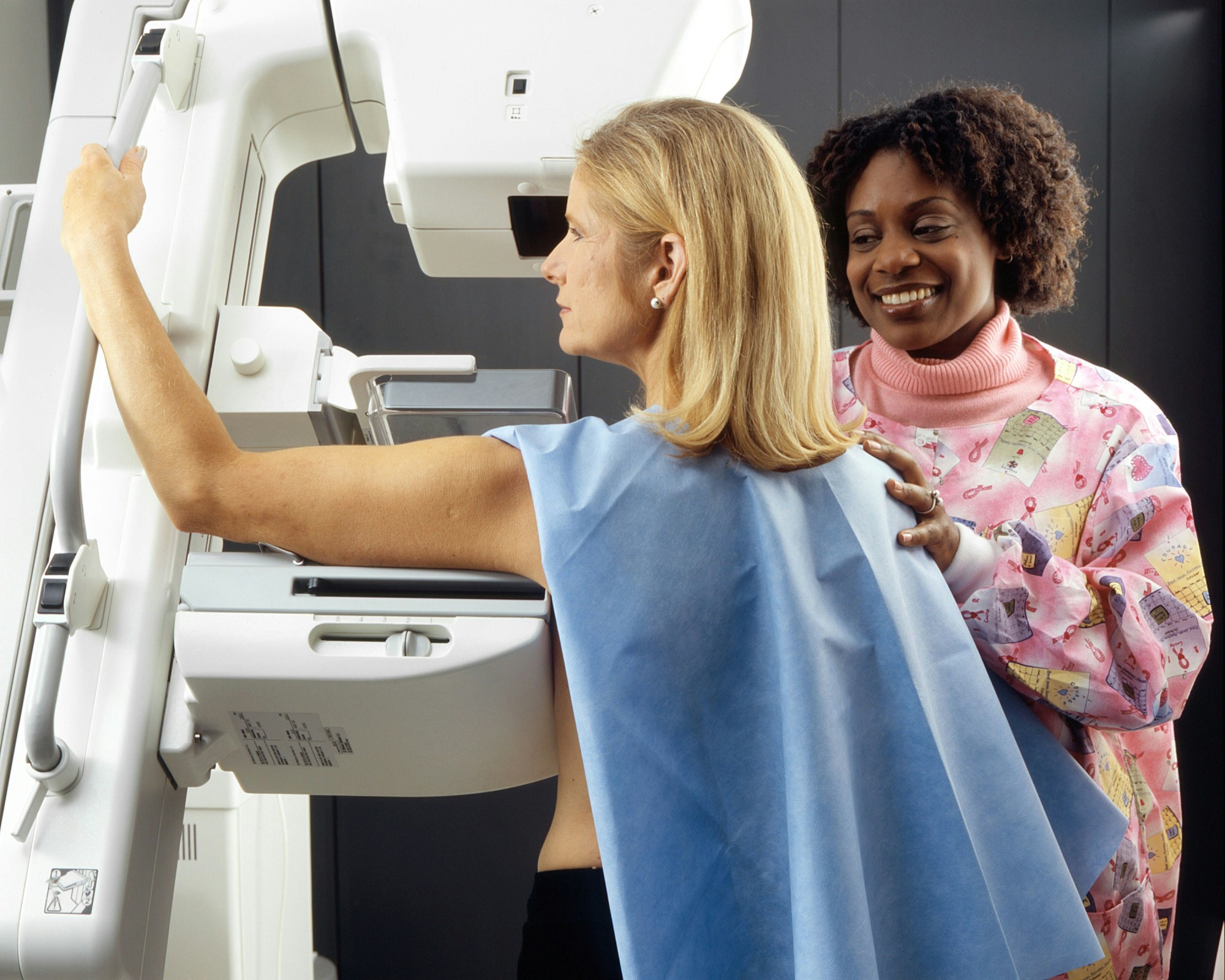Women have specific health needs that are are often overlooked by medicine and health services. Firmly convinced of the key role that research plays in improving women’s access to healthcare throughout their lives – from infancy to old age – the AXA Research Fund committed €1M in 2019 to a dedicated Women’s Health Fellowship.
The Fellowship is a funding scheme aimed at supporting the interdisciplinary research of promising young scientists on a topic that is a societal priority. Women’s health is one such subject.
Following a demanding selection, the Fund has granted support to 8 outstanding scientific post-doctoral research projects dedicated to women’s health. Let’s discover them.
Women’s Health Fellowship Projects
The Women’s Health Fellowship projects focused on improving both maternal health and broader women’s health, as well as addressing domestic violence and abuse against women. Research themes included pregnancy-related lumbopelvic pain, postpartum hemorrhage, delayed access to emergency obstetric care, gynecological bleeding, osteoporosis, young girls’ diets, obesity among women of African origin in the UK, and early detection of cervical cancer.
The outputs of these projects include knowledge advancements and practices enhancements, as well as support for policy making. Among noticeable outcomes are the identification of predictors of pregnancy-related lumbopelvic pain, a new technique to screen patients with low von Willebrand factor (high bleeding risk), mapping and improved routes for areas with poor access to emergency obstetric care, an online resource for informal supporters of women experiencing domestic abuse, establishment of a link between bone and hematopoiesis, a comprehensive systematic review of the diets of young children, a study of the dietary practices of Ghanaian women, and a portable photonic device for the early detection of cervical cancer.
AXA’s Women’s Health Fellowship projects have already begun contributing to improve maternal life outcomes, prevent chronic pain, reduce obesity, and close the gender-based health inequality gap. Browse an overview of the projects below.
Improving maternal health
Pregnancy-related lumbopelvic pain, postpartum hemorrhage, and delayed access to emergency obstetric care are three research areas that the AXA Research Fund Women’s Health Fellowship has funded.
Nina Goossens, a rehabilitation research scientist, has been studying the factors that could lead to pregnancy-related lumbopelvic pain (PLPP) and its persistence after childbirth at Hasselt University. Dr. Goossens’ objectives were twofold: to find out whether having less control over one’s body while standing can cause lumbopelvic pain during pregnancy and postpartum; and to uncover the reasons for this impaired control.
The results from the project have advanced our knowledge on the predictors of PLPP during pregnancy and after childbirth. Dr. Goosen’s work has helped change current unhelpful biomedical beliefs and increase awareness of the condition, enabling healthcare providers to take women’s pain complaints more seriously and encouraging women to seek aid rather than minimizing their pain. Her findings are a stepping stone toward improving screening procedures and prevention and treatment strategies, which could help prevent lumbopelvic pain from becoming chronic and recurring after giving birth, in later pregnancies and indeed later in life.
Irish hematologist Michelle Lavin has been studying gynecological bleeding and developing a technique that allows obstetricians to screen patients with an undiagnosed low von Willebrand factor (VWF), which is a protein that helps control bleeding. Identifying which women have a low VWF before they give birth would allow delivery room medical staff to be aware of bleeding risk and thus plan accordingly. This could help save lives and reduce the occurrence of postpartum hemorrhage (PPH), which is a major maternal health problem around the world.
The results from Dr. Lavin’s PPH-prevention study will be used to develop “bleeding scores” that can help predict which women are at risk of PPH. This is an important step towards improving maternal outcomes. If these scores prove useful, this tool will be implemented for all pregnant women in the future – ideally, in the next two to three years.
Medical doctor, public health practitioner, and global maternal and newborn health researcher Aduragbemi Banke-Thomas has been studying the problems associated with pregnancy-related complications while at the LSE. These include hemorrhage, high blood pressure, obstructed labour, infection, and complications following unsafe abortions. Almost all of these deaths occur in low-and middle-income countries. One of the main reasons for this is delayed access to Emergency Obstetric Care (EmOC).
The findings from his research highlighted areas in Lagos in Nigeria that are particularly disadvantaged for pregnant women when it comes to accessing EmOC. His results have already been used by the Lagos State Government to put forward a case to correct the issue and determine a cost-effective location for a new public hospital. The project has clearly shown that the “urban advantage,” which city dwellers are reported to have over rural residents, is blurring with accessibility issues and even higher odds of poor pregnancy outcomes in some suburbs compared to rural areas.
The project has also led to a collaboration with Google to develop an application for EmOC geographical accessibility in Nigeria, with plans to scale up to other African cities.
Domestic violence and abuse against women
Positive support from “informal supporters” (friends, family members, neighbours, or colleagues) can be vital for women who are experiencing domestic violence or abuse, but most of us have little idea what advice to give in such situations.
The aim of Dr. Alison Gregory’s project at Bristol University was to establish the resources needed by informal supporters, in order to equip them to provide valuable support to women experiencing domestic abuse. Dr. Gregory found that a resource that combined accessible information about domestic violence and abuse with practical advice and acknowledgement of emotional impacts was most needed. As a result, she has developed an online resource (due to be published by the end of the year) that includes information about what domestic violence and abuse is, who it can happen to, how dangerous it can be, and what the common impacts are. It also includes practical advice about what people might notice in situations of domestic violence and abuse, how to sensitively ask questions, and how to listen and respond well – including the all-important “what to say” and “what not to say.”
Women’s health
Osteoporosis, the diets of young girls worldwide, obesity and related health problems among women of African origin in the UK, and the early detection of cervical cancer are also areas of research that benefited from funds from the AXA Women’s Health Fellowship.
Osteoporosis, a debilitating bone condition that leads to loss of bone density and bone weakening, is estimated to affect one in three women worldwide over the age of 50. This burden is likely to increase as the world’s population ages. Biologist Alessia Perino of the EPFL in Switzerland has been investigating alternative and safer treatments to estrogen replacement therapy, which has several negative side effects, and into the role bile acids play in breaking down old bone and generating new bone in its place.
The results from her study show a link between bone and hematopoiesis (the process in which blood cells are continuously formed and renewed) and suggest that targeting TGR5 could improve hematopoiesis by modulating bile acid-TGR5 signalling. Dr. Perino’s work could therefore help develop new therapeutics for patients with osteoporosis once the molecular mechanisms underlying the observed effects are fully understood.
Dr. Megan Jarman at Aston University in the UK has undertaken the largest-ever comprehensive systematic review of the scientific literature on the diets of young children. In her review of 246 articles, she discovered that previous studies to evaluate intervention targets do not take into account the inherent complexity of factors governing the choice of what to feed children.
Dr. Jarman convened a group of key stakeholders from local governments and health services working with families with young children to conduct a system mapping workshop and identify key drivers to focus a new model on. This approach, dubbed FeedQuest, together with the information garnered from her literature review, highlighted these as being a child’s psychological traits, parental feeding strategies, and the environment during meals.
In addition to its function as a tool for collecting complex data, FeedQuest is also being developed for use in clinical settings. Indeed, Dr. Jarman is collaborating with her local community NHS trust in the UK to design a study to test its usefulness for dieticians in contact with families with children who do not have access to a wide range of foods. A grant for this work and the creation of a new version of FeedQuest is currently under review.
Post-doctoral researcher at the University of Sheffield in the UK Hibbah Osei-Kwasi has been studying what Ghanaian women and Ghanaian immigrant women eat daily and how they prepare their meals at home. Dr. Osei-Kwasi found that Ghanaian women in both Ghana and the UK often cook from scratch and adhere to the idea of feeding their families in culturally acceptable ways. Indeed, many women maintain their traditional diets after migrating and perceive their dietary practices as being healthy, dissociating them from overweight and obesity. Another major finding is that despite recognizing obesity as an important health issue, Ghanaian women do not see changing their cooking behaviors as a priority.
The evidence garnered from this project will help reduce obesity and related health problems among women of African origin in the UK and beyond thanks to context-specific and culturally appropriate interventions, for example, a community-based intervention to improve lifestyle behaviors.
Early detection of cervical cancer is vital, but many current detection methods for the human papillomavirus (HPV) require bulky equipment and are costly. To address this problem, physics engineer Dr. Serap Aksu from Koç University in Istanbul has been developing a portable photonic device that can detect carcinogenic HPV 16 and 18 DNA fragments (two of the viruses that cause 70% of cervical cancers and precancerous cervical lesions) in infected cells with high precision.
The device is the first complete handheld cervical cancer screening system. While currently at the “proof-of-concept” stage, Dr. Aksu is planning to miniaturize it further and test the system with real patient samples. Thanks to its portablility and simplicity, it can easily be transported and employed in remote regions in the world where healthcare – especially for women – is lacking. Given that HPV is principally a feminine cancer, the use of this device will help close the gender-based health inequality gap in these hard-to-reach geographical areas.
Advancing Women's Health
The booklet summarizes all outcomes from the 8 selected postdoctoral research projects from the Women's Health Fellowship.
Download The BookletDiscover research projects related to the topic
Mental Health & Neurology
Extreme Weather Events
Pollution
Alzheimer's Disease, Dementia & Neurodegenerative Diseases
Droughts & Heatwaves
Air Quality
Mécénat des Mutuelle
France
CLIMABRAIN: Impacts of Extreme Weather on the Most Vulnerable Living with Alzheimer's disease
In the context of the increase in extreme weather events due to climate change, the project led by Tarik Benmarhnia... Read more

Tarik
BENMARHNIA


